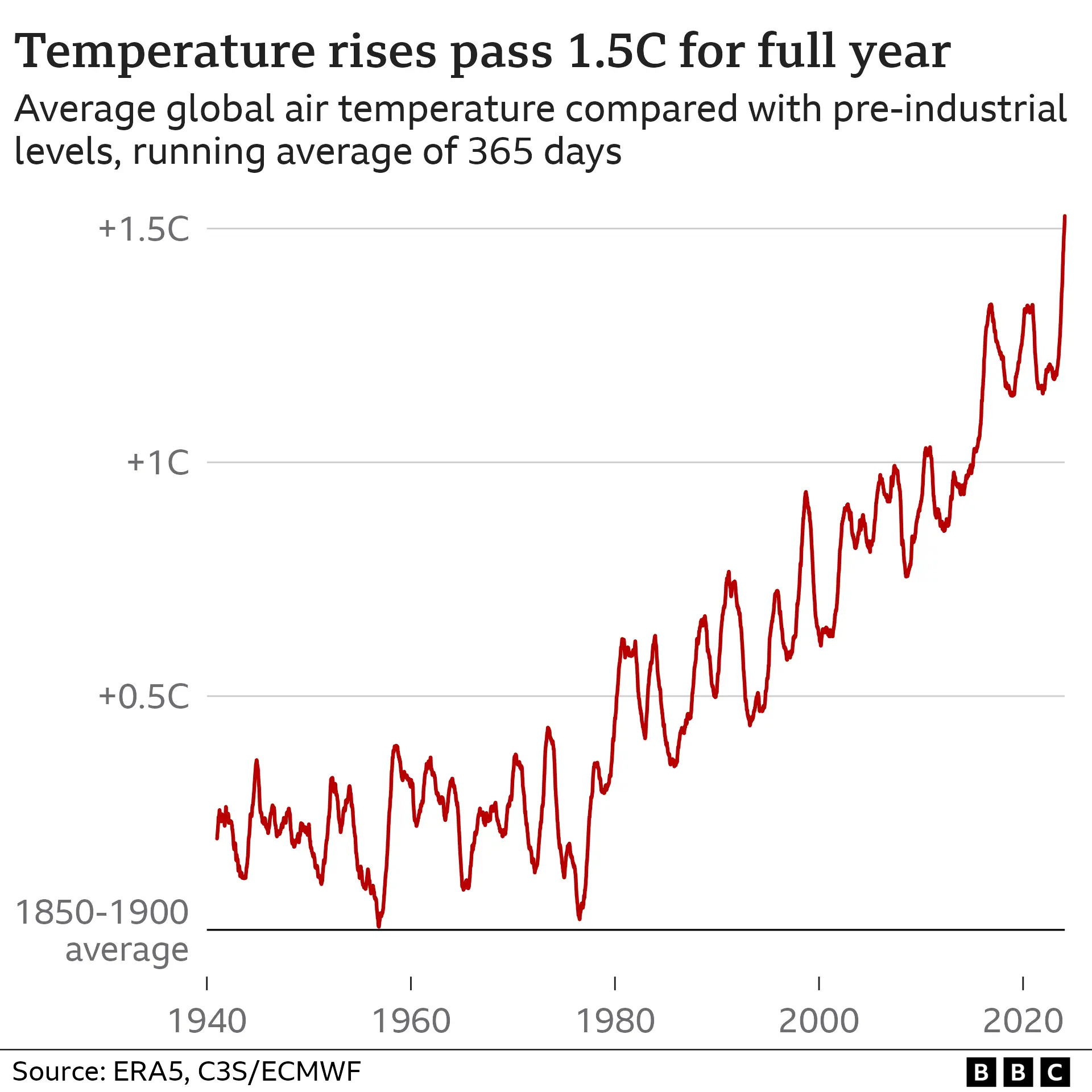Global temperatures have surpassed the 1.5°C mark for the entire year for the first time, as reported by the EU’s climate service. In 2015, world leaders committed to limiting the long-term temperature increase to 1.5°C to mitigate severe consequences. Although this year-long breach does not violate the Paris Agreement outright, it brings the world closer to jeopardizing the long-term goal. Scientists emphasize the importance of urgent measures to reduce carbon emissions, which can still help slow down global warming.
Prof Sir Bob Watson, a former chair of the UN’s climate body, expressed concern, stating, “This far exceeds anything that is acceptable.” The consequences of just a 1.5°C increase have already manifested in floods, droughts, heatwaves, wildfires, reduced agricultural productivity, and issues with water quality and quantity.

The period from February 2023 to January 2024 recorded a warming of 1.52°C, according to the EU’s Copernicus Climate Change Service. This development underscores the pressing need for robust climate action globally.
Amid this warning, news broke that the UK’s Labour Party is abandoning its £28 billion annual green investment plan, marking a significant policy shift. Additionally, the Conservatives have delayed key targets, indicating a scaling back of crucial climate pledges by the country’s major political parties.

The report also highlights that the world’s sea surface temperature is at its highest recorded average, a noteworthy observation given that ocean temperatures typically peak in the coming month. This serves as another indication of the widespread impact of climate change records.



























